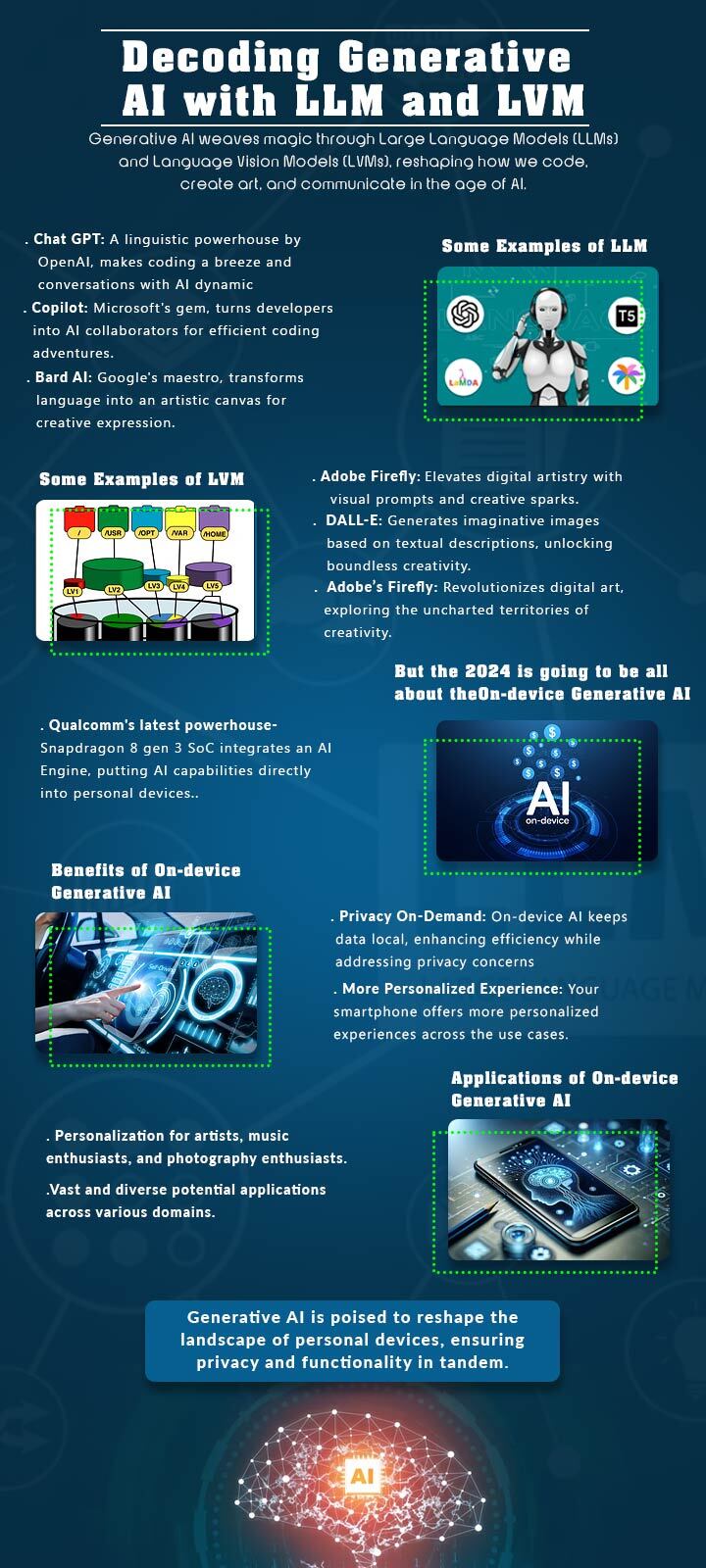
Generative AI is reshaping how we code, create art, and communicate, with Large Language Models (LLMs) and Language Vision Models (LVMs) leading the way.
Examples of LLMs:
Chat GPT: OpenAI’s linguistic powerhouse simplifies coding and brings dynamism to AI-driven conversations.
Copilot: Microsoft’s gem turns developers into efficient AI collaborators for coding adventures.
Bard AI: Google’s maestro transforms language into an artistic canvas for creative expression.
Examples of LVMs:
Adobe Firefly: Elevates digital artistry with visual prompts and creative sparks.
DALL-E: Generates imaginative images based on textual descriptions, unlocking boundless creativity.
Adobe’s Firefly: Revolutionizes digital art, exploring uncharted territories of creativity.
2024: The Era of On-device Generative AI
Qualcomm’s latest Snapdragon 8 Gen 3 SoC integrates an AI Engine, placing AI capabilities directly into personal devices.
Benefits of On-device Generative AI:
Privacy On-Demand: Localized data storage enhances efficiency while addressing privacy concerns.
More Personalized Experience: Smartphones offer tailored experiences across various use cases.
Applications of On-device Generative AI:
Personalization for Enthusiasts: Tailored experiences for artists, music enthusiasts, and photography lovers.
Vast and Diverse Potential: Applications across various domains herald a new era in personal devices.
Reshaping the Landscape:
Generative AI is poised to reshape the landscape of personal devices, ensuring privacy and functionality go hand in hand.
